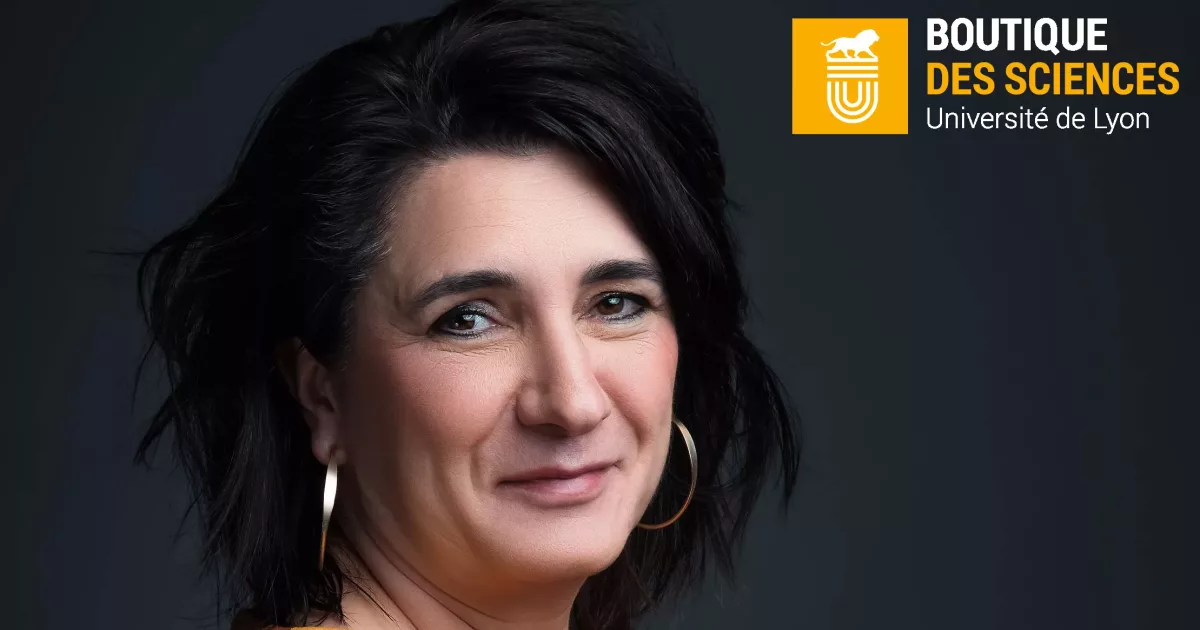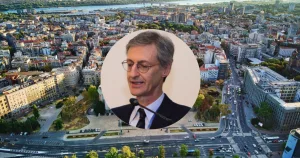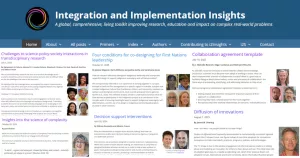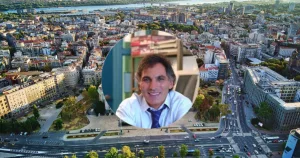Florence Belaen: “University must be involved in the development of the economy and the region”
The science shop at Lumière-Lyon 2 University gives associations and social economy businesses access to research

What is the purpose of the science shop that you run?
Florence Belaen: First and foremost, it is a way to bring the university closer to its environment. In France, since the 2010s, local authorities, of regions and cities like Lyon, have been increasingly supporting universities. This has led the elected representatives of these local authorities to demand that universities play a role in the development of the economy and the region, and that they assume their social responsibility by putting the production of academic knowledge to good use. We also have a strong and dynamic social economy, which is a major source of employment, and which the university has a duty to support.
Does this rapprochement also meet the university’s needs?
F. B.: There is a research trend, particularly in humanities and social sciences universities, that wants to be connected with the field. We are working on sustainable development and artificial intelligence, but we need to be in touch with the players in society: in major research programs, we sometimes forget about the end users. But we cannot have “thinking heads” on one side and the people who actually do the work on the other. Citizens have to “be in”. And there is also a pedagogical interest for the university: being able to offer students the opportunity to work on real situations, real societal demands.
What initiatives have you set in place to meet these needs?
F.B.: We collect social demands, and we assign students on masters courses, supervised by researchers, to answer to them through internships.
How do you collect these requests?
F.B.: We offer free academic expertise, which is attractive. But we need to get the word out: we communicate by traditional means, via social networks, and we work with networks of players, such as the Institut français du monde associatif. We currently receive around fifty requests a year. They come from associations, groups and cooperatives: the issues must be non-profit-making, of general interest, and the structure must be solid enough to take on a trainee.
Do you receive any applications from more traditional companies?
F. B.: The operation costs the university €4,500 for each intern. So we give priority to organizations that do not have a lot of resources. Requests from companies that can pay for academic expertise are redirected to the university’s research department. For the same reasons, we do not fund internships in local authorities, which have sufficient resources. This does not prevent us from sometimes supporting internships funded by these bodies. We also work a lot with Sciences Po’s Public Factory, which complements what we do: it responds to public commissions through student work.
How does the selection process work?
F. B.: We have a scientific committee, with whom we choose 13 internship projects: ten of which will be paid for by the Boutique des Sciences, and three by the host organizations. We also refer certain requests that we feel require a tutored project rather than a master’s-level placement to teacher-researchers.
Are all the interested organizations capable of formulating relevant research questions?
F. B.: No. First, they answer to a call for expressions of interest. We then offer them “emergence” workshops, where we get the applicants to work on what motivates them. This also enables us to check that the interest for the research is not just one person’s interest in the hosting organization, but that it is shared. Sometimes respondents come with too many questions, and we have to select the most important or urgent one. Sometimes they express a question that hides another one. When an association wants to work on the impact of its actions, for example, is it to prepare for lobbying, or to be accountable to their funders? Finally, we need to define the angle from which we are going to study the question, to determine the most appropriate speciality for the trainee.
How do you go about this?
F. B.: We draw up an internship offer for a student, and we recruit the students in conjunction with the concerned organization. We then look for an academic to provide scientific supervision. This sometimes makes it possible to introduce a multi-disciplinary approach: for example, the student might be doing a master in sociology, and the scientific manager might be in political science. We also need to involve the association in the research protocol: it has produced the question, but it needs to support the student in collecting data, analyzing the results, and so on. Two project managers accompany the placement, to train the intern and their supervisors in participatory research, introduce the models and pitfalls, and check that everyone has understood the framework. We also meet regularly with the association and, in general, we take part in the presentation and promotion of this work.
What is the impact of this operation?
F. B.: For the university, it is politically interesting, because it allows it to show that it works with social economy players, and that it devotes resources to it: the whole scheme costs 150,000 to 200,000 euros a year, which is significant. This gives visibility to master degrees, in anthropology or local development, for example. We also carried out an impact study with a consultancy firm. It showed that the associations were able to turn a corner, find reflective elements or decision-making aids, an economic model and arguments for their funders. When you involve local residents or end-users in a study, there is a transformation in power relations and negotiation. It is not so much the final report that will change things. But getting different stakeholders around the table, working together to develop an understanding of the situation, looking for solutions together, helps to mitigate some of the symbolic violence between them and to redress the balance of power: an association does not a priori have the same ressources as a local authority or a company. In this context, the university’s contribution is not just academic knowledge, but also scientific methods.
Could you do more?
F. B.: We would like to go beyond the master’s level, which is the first level of research: develop subjects for PhDs, funded by companies, local authorities or associations. We already began to train PhD students in participatory research.
Is the Lumière-Lyon 2 science shop an exception?
F. B.: Science shops first appeared in the 1970s, in the Netherlands specially, set up by militant researchers who were steeped in popular education and participatory democracy, perhaps was a little ahead of their time. The Lyon science shop was supported from the outset by Living Knowledge, the European network of science shops. We were mentored, and benefited from several European projects, notably PERARES (Public Engagement with Research And Research Engagement with Society) and the Responsible Research and Innovation (RRI) actions.
Today, there are only five French science shops in this European network: is that representative of the situation?
F. B.: Several universities have launched projects, but quite recently, and these science shops have not yet joined the network. There is also a French-speaking network of science shops, through which we have links with Belgium, Canada, African countries and so on. But we do not have enough support for all these networks: we need human resources to run them and monitor them regularly.
Interview by Luc Allemand
SUBSCRIBE TO OUR NEWSLETTER
To stay up to date with our projects and the development of the EHC
Read more articles

Gian Francesco Giudice: “Ethical responsibility is essential in fundamental research”
From hypothetical black holes to environmental impact studies, CERN navigates risk, transparency, and moral responsibility at the frontiers of human

Dealing with the complexity of society and environment
A global toolkit for tackling complex problems with more than 600 different methods Ever wish you had a free toolkit

The Moon & the Global South: Voices, Risks & Promise
Researchers warn that without inclusive governance, the Moon could become “a new arena for old patterns of exclusion” When rockets

Borko Furht: “AI shouldn’t be given much autonomy without maintaining accountability”
Beyond Superintelligence: The Real Challenges of Keeping Humans ‘In the Loop’ Borko Furht is a professor in the department of